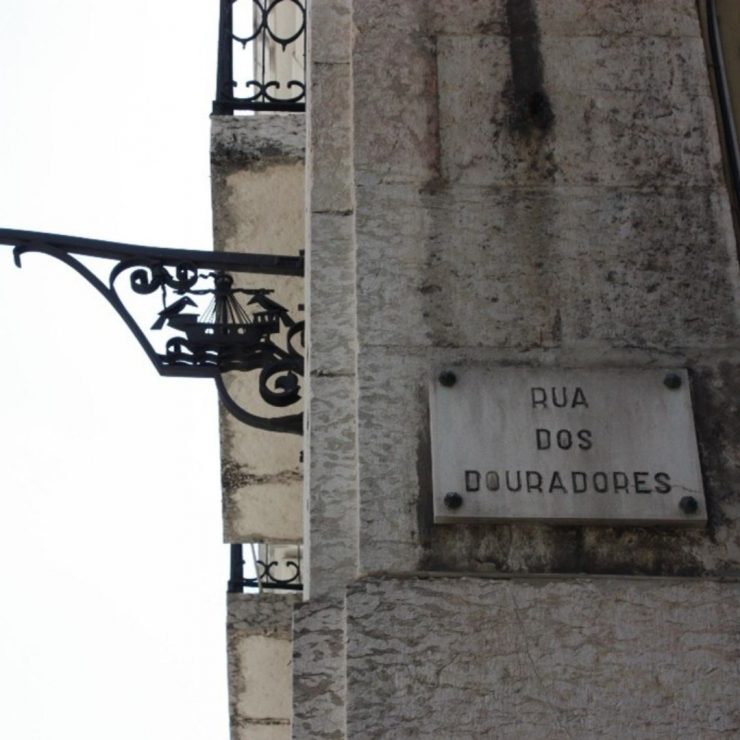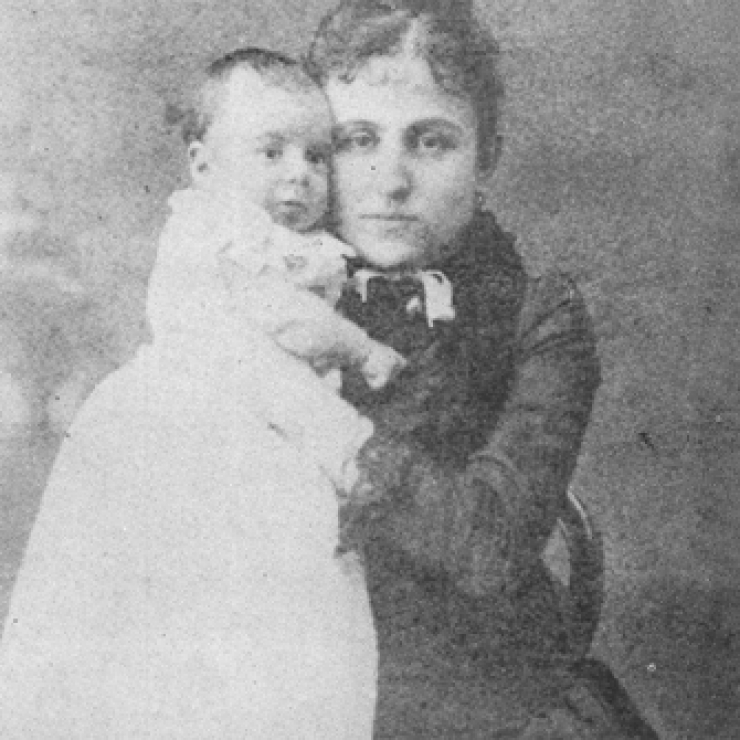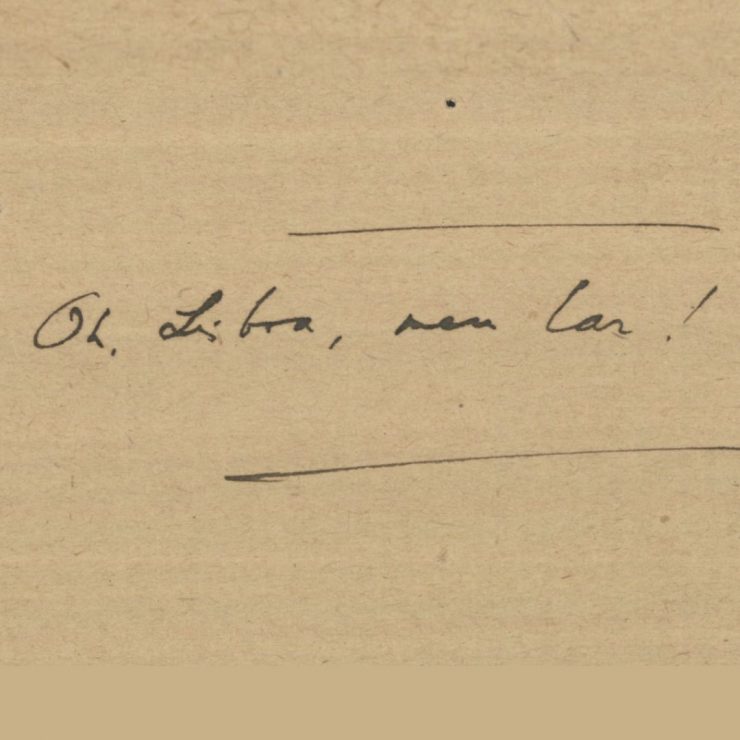Here we propose reading extracts from five poems by Fernando Pessoa, namely by his heteronym Álvaro de Campos, which the Portuguese author published during his lifetime (1888-1935). This is what Pessoa wrote in 1935 (in a letter to Casais Monteiro) about this modernist, futurist and decadent heteronym, who made his public debut in 1915 in the magazine Orpheu, co-directed by Pessoa himself:
«[…] in Álvaro de Campos I placed all the emotion that I deny myself and don’t put into life ….»
«Álvaro de Campos was born in Tavira on October 15th 1890 (at 1.30 pm., so Ferreira Gomes tells me, and it’s true because, according to the horoscope made for this hour, all is correct). Campos, as you know, is a naval engineer (he studied in Glasgow) but he is currently living in Lisbon and not working.»;
«Álvaro de Campos is tall (5 ft. 9 in., an inch taller than me), slim and a bit prone to stoop. Clean-shaven […]; vaguely Jewish-Portuguese, pale olive skin, straight hair, usually side parted, wore a monocle.»
«Álvaro de Campos, after a normal high school education, was sent to Scotland to study engineering, first mechanical and then naval. During some holidays he made a voyage to the Orient, which gave rise to his poem Opiary. An uncle who was a priest from the Beira region taught him Latin.»
«How to I write in the names of these three [heteronyms, Campos, Reis and Caeiro]?… Campos, when I feel a sudden impulse to write and don’t know what.»
In many cases, his poetry is part of the literary current of Sensationism, founded by Fernando Pessoa and Mário de Sá-Carneiro through the magazine Orpheu (1915), in which Campos’ two poems “Opiário” and “Ode Triunfal” were published as early as No. 1.
In fact, the paradigmatic message of Sensationism itself can be intuited through a verse by Campos himself:
«To feel everything in every way»
(in the poem«The Passage of the Hours», 1916)
Another passage from Campos is one of Fernando Pessoa’s best-known phrases, and is even the message that inspires the Literary Tourism project at the Lisboa Pessoa Hotel:
«I have in me all the dreams of the world»
(in the poem «Tobacco Shop», 1928).
Here are five poems and passages extracted from Campos’ poems, accompanied by images of the original publications, in chronological order of publication and with bibliographical data for each poem. The spelling has been updated.
Enjoy your reading!
Verses from «Lisbon Revisited (1926)»
[…]
Again I see you,
City of my childhood so painfully lost…
Sad, joyful city, again I dream you here…
Me? But am I the same Me who lived here, and returned here,
And who returned here again, and again,
And who returned here again?
Or are we, all the Mes that I or they were here,
Just a series of stories-cum-beings linked by a thread of memory,
A series of dreams of me dreamed by someone outside of me?
Again I see you,
With my more distant heart, with my less-than-mine soul.
Again I see you—Lisbon and the Tejo and everything—
A random passerby in you and in me,
A foreigner here as everywhere,
[…]
(Contemporânea, 2, 1926, pp. 82-3)
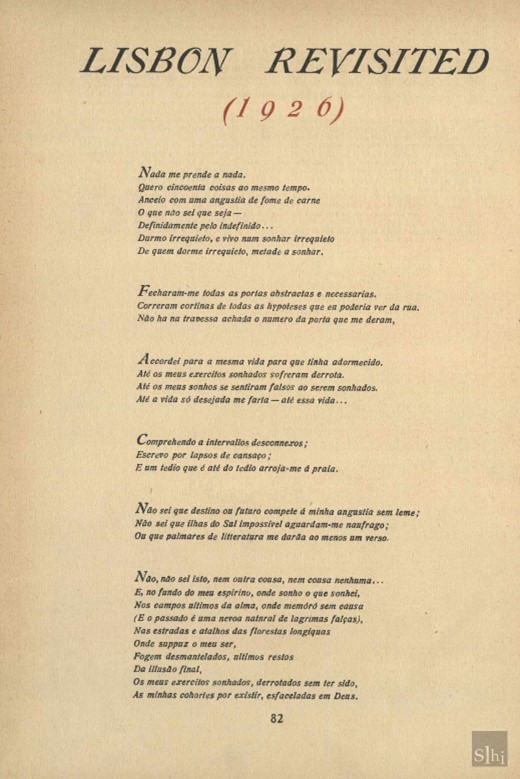
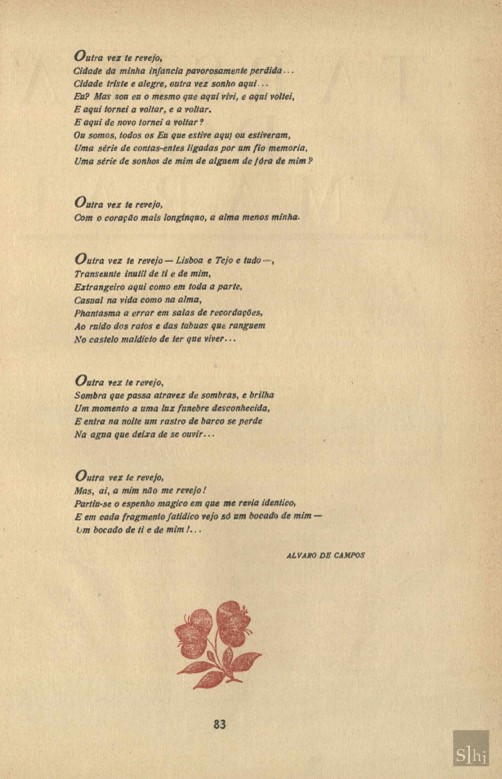
«Written In a Book Abandoned in Travel» (1928)
I’ve come from around Beja.
I’m going to the middle of Lisbon.
I’m bringing nothing and I’ll find nothing.
I have the anticipated weariness of what I won’t find,
And the melancholy I feel is neither in the past nor in the future.
I leave written in this book the emblem of my final design:
I was, like weeds, and they didn’t tear me out.
(Presença, 10, 1928, p. 2)
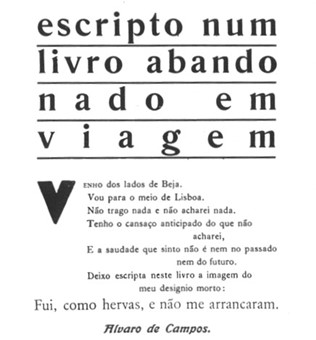
«Birthday Poem» (1930)
In the days when they used to celebrate my birthday,
I was happy and no one was dead.
In my old house, even my birthday was tradition for centuries,
And everyone’s happiness, even mine, was upheld like a religion.
[…]
(Presença, 27, 1930, p. 2)
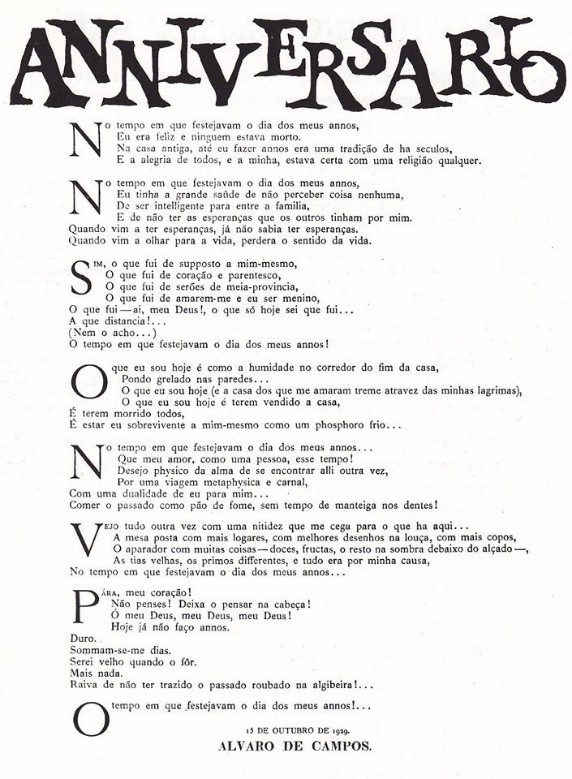
«Ah, a Sonet…» (1932)
My heart is a mad admiral
Who abandoned the profession of the sea
And who goes on remembering it little by little
At home walking up and down, up and down…
In his movement (I myself dislocate me
In this chair, just from imagining it)
The abandoned sea fixes in focus
In his muscles wearied of halting.
There are pinings in his legs and in his arms.
there are pinings in his brain and out.
There are great rages made from exhaustions.
But — isn’t this nice! — it was of the heart
That I spoke… and where the devil am I now
With an admiral in place of sensation?…
(Presença, 34, 1932, p. 7)
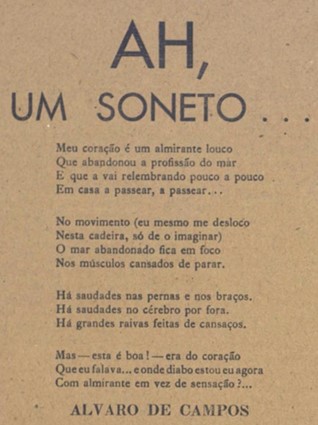
Verses from «Tobacco Shop» (1933)
I’m nothing.
I’ll never be anything.
I can’t wish to be anything.
Even so, I have in me all the dreams of the world.
[…]
(Presença, 2, 1933, p. 39)
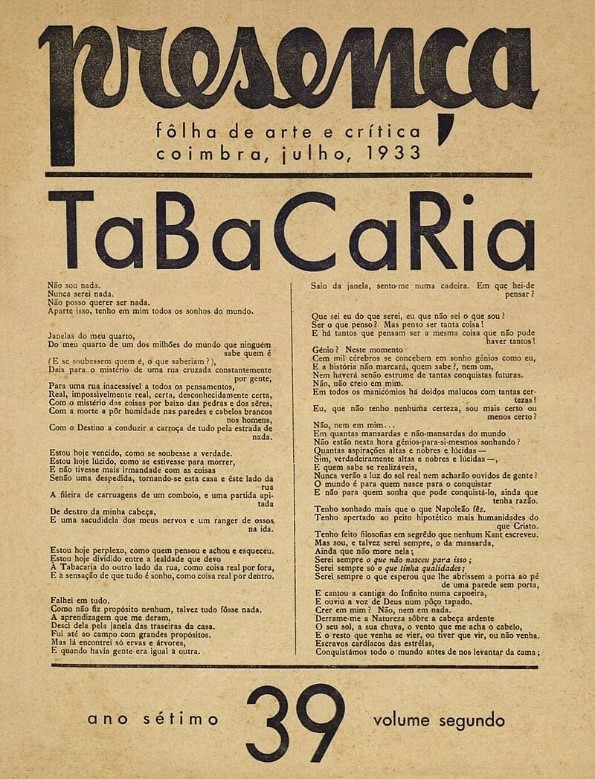
Introductory note and selection by Fabrizio Boscaglia.
_
Discover Lisbon & Pessoa, from Lisboa Pessoa Hotel.


